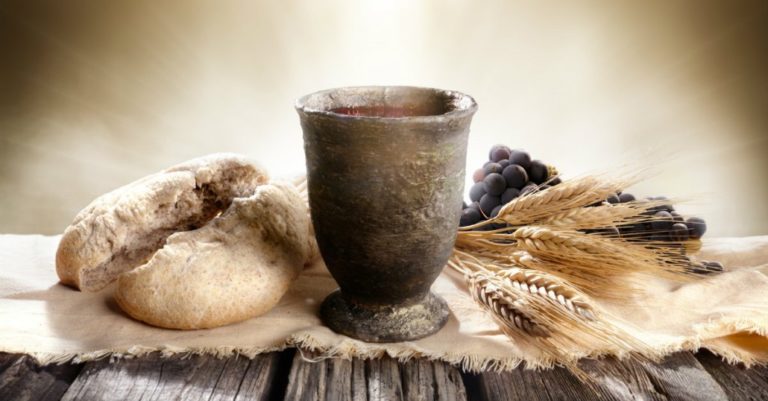
Remembrance
November 12, 2018 Roland Kuhl 0 Comments
Yesterday was Remembrance Day (the name Canadians give to Veteran’s Day). I remember when I was in grade school, my 6th grade teacher, Mrs. Newby, was the director for the community theatre, so our class was commissioned to do the Remembrance Day school play. Though Remembrance Day commemorates the end of WWI, we portrayed the Allied raid, largely comprised of Canadian infantry, on Dieppe in WWII, which took place between the evacuation of Dunkirk in 1940 and the D-Day invasion of 1944. It was a failed raid in which over 60% lost their lives. As children, we were all given red poppies to wear as an act of remembrance of the sacrifice of Canadian soldiers have made in all wars in which Canadians have been involved.
As a Mennonite, my remembrance goes much deeper. A few years ago, when I was pastoring a Mennonite congregation in Illinois, I participated with a group of other Mennonites to discuss healing the spiritual wounds of war, as soldiers began returning from Iraq and Afghanistan and still encountered Vietnam veterans who were still struggling after forty years,. When President Obama began sending large numbers of troops home, the Great Lake Naval Base hosted an event for local clergy on how we might welcome returning vets in order to minister to them. The focus was on being military-friendly churches. I was asked as a Mennonite whether we would become a military-friendly church and I responded that I did not believe we would ever be known as a military-friendly church, because we are committed to non-violence and even more actively, getting in the way of violence. However, I responded, we would be known as a congregation that is friendly toward members of the military who are spiritually wounded, morally wounded, because of their involvement in war and in need of healing. In fact, the military itself recognized that involvement in war produces moral injury for which they did not have adequate resources in order to help.
So, yes, my remembrance goes much deeper. My remembrance, in the face of humanity warring against humanity, in human beings spilling the blood of other human beings – combatants and civilians – in wars than can no longer be justified, my memory is of a death on Roman gallows almost two thousand years ago. My remembrance goes much deeper, focusing not on a flag in the corner of a room, but on a Table around which we gather.
In fact, every Sunday, in the celebration of the Eucharist (communion or the Lord’s Supper), we participate in a deep remembrance, remembering Christ Jesus. In the act of not fighting against his accusers, his executioners, Christ Jesus, in giving of his body and shedding of his blood, disarmed the principalities and powers that war against flesh and blood, that bind, enslave, and oppress humanity, and made a spectacle of them by triumphing over them by the cross (cf. Colossians 2:15). Jesus, by not opposing those who arrested him, he opposed the forces of evil that imprison humanity, the forces that goad humanity into warring against one another. Jesus overcame them by taking the violence against all humanity upon himself. Darkness and evil, that seek to remain hidden motives in the hearts of human beings, were exposed, were brought into the light, as they inflicted death upon the body and life of Jesus. Instead, rather than the cross being a defeat, the cross and his resurrection bound the power of evil, bound the powers and authorities, negated that the only option we have as human being for resolving conflict is to war against another. Jesus revealed that violence does not need to be met with violence but that resistance comes through refusing to overcome violence with violence. In Christ, we can participate in this new reality in which we engage one another in ways that bring reconciliation and healing, by loving our enemies and making them our neighbors, our brothers and sisters.
Some argue that the cross accomplished nothing real, it is only the myth of what faith wishes might be real. Yet, those who do not try to submit to the way of Jesus, will never discover the reality of how refusing to confront violence with violence, indeed does create a new reality for how we can live at peace with one another.
I was reminded of this as I viewed the film, The Forgiven. It is a film recounting the struggle of The Truth and Reconciliation Commission in post-Apartheid South Africa in seeking to bring about forgiveness, reconciliation, and peace, rather than succumbing to civil war to resolve the hatred between blacks and whites. Against the odds, of the ones who regarded the success of this commission as impossible, a new reality was birthed that shaped South Africa. The way of Christ is not real in our world, not because it is not effective in overcoming evil, it is because we refuse to overcome evil in this way. As we seek to overcome violence with more violence, we do not prove ourselves to be stronger, we just prove we know how to kill each other. The way of nonviolence, the way of Jesus, reveals that the way of peace can and does overcome violence.
And so, as I remember those who sacrificed their lives in war, I have a deeper remembrance that reflects on the possibility of a new reality, focused on bread and the cup at a Table to which Christ invites all of us – no matter who we are, to participate in a reality that seeks to undo violence in our world, that ends human beings warring against one another, and enables us to discover what peace can build. May our remembering become rememberings of peace.